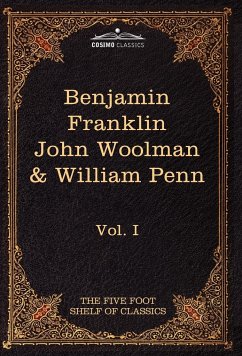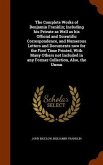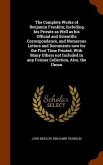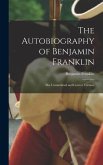Author name not noted above: William Penn. Originally published between 1909 and 1917 under the name "Harvard Classics," this stupendous 51-volume set-a collection of the greatest writings from literature, philosophy, history, and mythology-was assembled by American academic CHARLES WILLIAM ELIOT (1834-1926), Harvard University's longest-serving president. Also known as "Dr. Eliot's Five Foot Shelf," it represented Eliot's belief that a basic liberal education could be gleaned by reading from an anthology of works that could fit on five feet of bookshelf. Volume I features: ¿ The Autobiography of Benjamin Franklin, the story of the American icon BENJAMIN FRANKLIN (1706-1790), as wildly intriguing a personality as his legend suggests. ¿ Journal, by Quaker preacher JOHN WOOLMAN (1720-1772), featuring his thoughts on civil resistance to slavery, conscientious objections to war, and more. ¿ Fruits of Solitude, by Colonial leader WILLIAM PENN (1644-1718), a collection of wise aphorisms that anticipated Franklin's Poor Richard's Almanack by half a century.
Bitte wählen Sie Ihr Anliegen aus.
Rechnungen
Retourenschein anfordern
Bestellstatus
Storno








